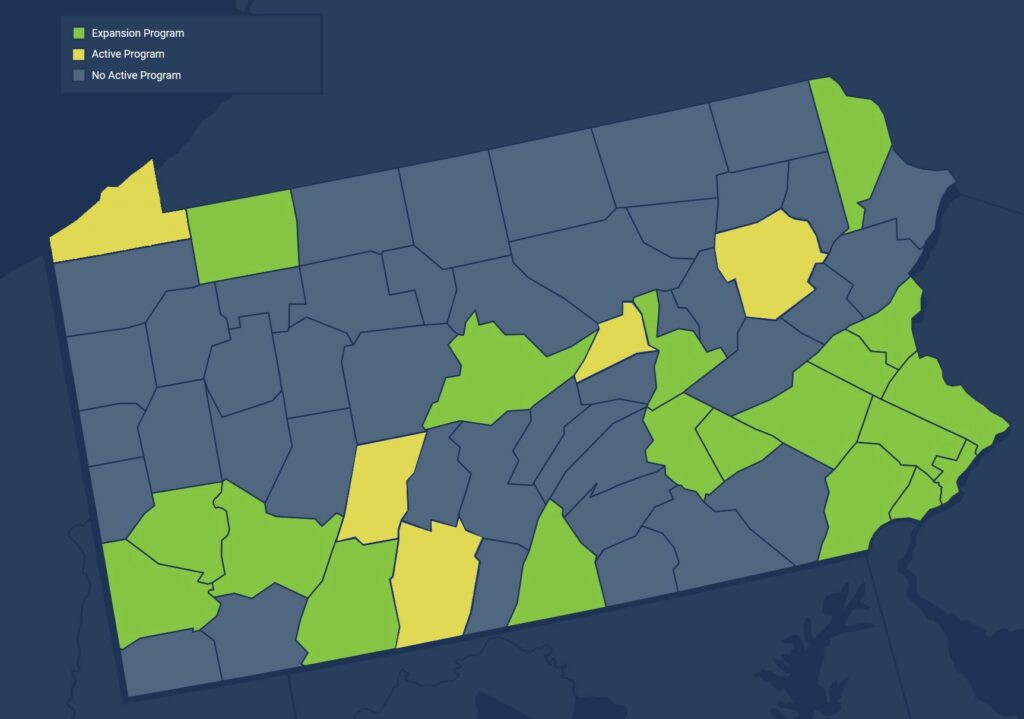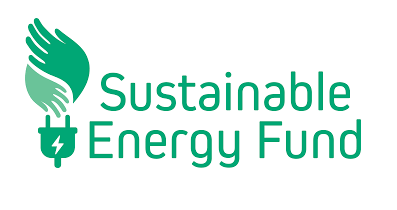Update: On Wednesday, the county commissioners voted unanimously to establish a countywide C-PACE program and appointed the Sustainable Energy Fund as the program administrator.
Previously reported:
The Lancaster County commissioners are scheduled to vote Wednesday to authorize a program that provides low-cost, long-term financing for energy efficiency projects.
The program is known as C-PACE, short for “Commercial Property Assessed Clean Energy.” Pennsylvania authorized it in 2018: Lancaster County would become the 26th county to implement it.
C-PACE mainly designed for businesses, but nonprofits can take part as well. The program does not apply to government entities or single-family homes. Eligible projects can include renewable energy equipment such as solar panels or geothermal systems; energy-savings projects such as window or lighting retrofits or new heating and air conditioning systems; water conservation and indoor air quality improvements.

The financing covers 100% of the project costs, including “soft costs” such as design and other professional services. Repayment can be stretched out over the entire life of the installed equipment or materials, up to 30 years. That’s one of the main selling points for clients, said Brian Hillard of the nonprofit Sustainable Energy Fund.
In Philadelphia County, the government runs its C-PACE program itself. In the other 24 counties with C-PACE, the Sustainable Energy Fund runs the program on a “turnkey” basis. That’s the plan in Lancaster County as well. It’s essentially “C-PACE in a box,” Hillard told the county commissioners at a presentation last month.
What makes C-PACE distinctive — and requires the county’s involvement — is how debt service is collected. The debt is attributed to the property itself, not the owner, and debt service is paid by a “special assessment” on the property, paid the same way as property taxes.

The arrangement would require the county treasurer to bill property owners and remit them to the Sustainable Energy Fund, which would remit them in turn to the respective lenders.
Counties are allowed to charge an administrative fee to cover their in-house work. A survey of peer counties found fees ranging from $250 to $800, Solicitor Jackie Pfursich said. The county is hoping that the fee structure it is proposing — $150 to $625 based on the size of the project — will suffice to cover its costs, but administrators won’t know for sure until the program is up and running and they can see how much interest and activity there is, Pfursich said.
Hillard said C-PACE is a win for businesses and the community at large: Businesses save money while financing projects that benefit the environment, growing the local “green economy” and supporting skilled, well-paying jobs.
There are already a couple of entities in Lancaster County interested in pursuing C-PACE financing, said Kelly Sanders, the fund’s vice president of programs.
The county took its first step toward C-PACE last month, sending a required notification to Lancaster County’s 60 municipalities that the program was under consideration.
On Tuesday, all three commissioners indicated they are willing to move forward. It’s a way to encourage private-sector investment and generate energy savings at minimal cost to local government, Commissioner Ray D’Agostino said.
The Lancaster Chamber, multiple regional chambers and the Economic Development Co. of Lancaster County all support establishing a local C-PACE program.
“We see this as another tool in the toolbox,” the EDC’s Ezra Rothman told the commissioners — a tool that likely can be used in combination with other programs available through the EDC.






